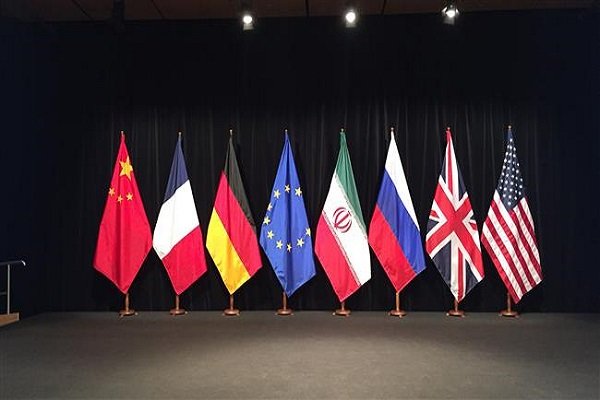Nuclear deal parties to convene on U.S. sanctions renewal

TEHRAN – Representatives from Iran and six signatories to an international nuclear deal will convene on January 10 in Vienna at Iran’s request to consider renewal of sanctions against Tehran by Washington for another ten years.
“The meeting will review the implementation of the agreement and discuss the issues raised in the letter [Iranian] Foreign Minister [Mohammad Javad] Zarif addressed on 16 December to (Mogherini)," a short statement from the EU said on Saturday.
Iran says the Iran Sanctions Act approved by the U.S. Congress will breach the terms of the nuclear deal that guaranteed Iran relief from sanctions in exchange for it pursuing a limited nuclear program, formally known as the Joint Comprehensive Plan of Action.
Iran’s Foreign Minister Mohammad Javad Zarif in a letter on December 16 to EU foreign policy chief Federica Mogherini asked for a session on the issue.
The expert-level meeting will probably the last one during the outgoing Obama administration, coming ten days before President-elect Donald Trump will take office.
Trump has said he will show a more antagonistic face to the deal, which Obama hails as a legacy foreign policy achievement.
The two sides have already met five times with the last one being held in New York in September.
The meetings are in line with a dispute resolution mechanism depicted in the nuclear deal to consider a compliance issue raised by any of signatories to the deal.
Under the first scenario, a Joint Commission consisting of the E3/EU+3 and Iran will monitor and address issues arising from the implementation of the deal.
The Joint Commission would have 15 days to resolve the issue, unless the time period was extended by consensus. After Joint Commission consideration, any participant could refer the issue to Ministers of Foreign Affairs, if it believed the compliance issue had not been resolved.
Ministers would have 15 days to resolve the issue, unless the time period was extended by consensus. After Joint Commission consideration, in parallel with (or in lieu of) review at the Ministerial level, either the complaining participant or the participant whose performance is in question could request that the issue be considered by an Advisory Board, which would consist of three members (one each appointed by the participants in the dispute and a third independent member).
The Advisory Board should provide a non-binding opinion on the compliance issue within 15 days. If, after this 30-day process the issue is not resolved, the Joint Commission would consider the opinion of the Advisory Board for no more than 5 days in order to resolve the issue.
If the issue still has not been resolved to the satisfaction of the complaining participant, and if the complaining participant deems the issue to constitute significant non-performance, then that participant could treat the unresolved issue as grounds to cease performing its commitments under the JCPOA in whole or in part and/or notify the UN Security Council that it believes the issue constitutes significant non-performance.
AK/PA
